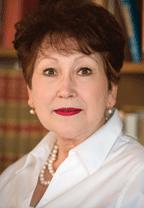
In a political season with second-rate candidates who stoke fear, spew hatred and push for quick fixes to complex problems, we can rely on the strengths of leaders in American history to guide us.
Presidents’ Day (Monday, Feb.15) is a time to honor past presidents and especially George Washington and Abraham Lincoln. Both presidents responded to problems of the nation with courageous words and actions. They shared, with other brave leaders, characteristics that included envisioning new horizons to improve society, persistence regardless of resistance and stamina despite sabotage. They concentrated on strengths not pessimism and championed civil liberties. President Obama recently called social reformers and elected leaders of the 19th century “warriors of justice,” specifically naming Abraham Lincoln.
Lincoln had an ability to think and see things differently, envisioning new and more equitable outlooks for the nation. At the start of his administration Lincoln described, like others of his time, America as being made up of a “Christian people.” As his presidency progressed, his thinking evolved to recognize the non-Christians of the nation. Lincoln reformed his figure of speech to make America inclusive of the Jewish people. It was important to him to acknowledge the Jews who had fought and died side by side with Christian soldiers. Lincoln expressed his change in thinking by using hereafter the phrase “this nation under God.” Lincoln’s words were clearly intended to include people of all religions. We need presidential candidates who value our nation’s tradition and Lincoln’s belief in religious diversity.
Brave leaders persist in their goals even when confronted with resistance or rejection. Lincoln and his supporters were convinced that he would be defeated for re-election. He disagreed to a compromised peace with the “Rebels” and refused to abandon his support for a constitutional amendment to abolish slavery. Lincoln believed he had a principled commitment to emancipation as a promise that he made to the black soldiers. Black soldiers fought for the Union and to have denied them freedom would have been to betray them. Lincoln was undaunted and persisted in his goal and he was reelected. Lincoln’s goals included upholding human rights and civil liberties for vulnerable groups such as racial and religious minorities. National leaders must be “headstrong” to stick to their goals rather than to seek agreement and camaraderie.
A clear example of Lincoln’s resilience was demonstrated when he was confronted by an act of policy sabotage. During the Civil War, anti-Semitism was rife and the Jews were blamed for wartime smuggling. After a single incident of suggested smuggling that included Jews, General Ulysses S. Grant issued the most shameful edict of official anti-Semitism. His purely dubious General Order No. 11 expelled all the Jews from the extensive land area under Grant’s command. Jews started packing up their belongings and prepared to leave their jobs, homes and properties. When the order reached Lincoln, he rescinded it immediately. Lincoln upheld his decision saying he would not judge the entire Jewish community by the wrong doing of a few. Resilient leaders, who are confronted by the wrong doing of some from a particular group, show citizens that xenophobia is not the American way.
Lincoln concentrated his efforts on strengths. He developed working relationships with Jews and he recognized, as a result, the value that they brought to American society, government and military positions, and to his administration. At one point in time time he was quoted as saying “We have not appointed a Hebrew” to defend one of his appointments. Lincoln demonstrated his sensitivity to broaden his administration’s base in fair and equitable ways. A specific focus on strengths energizes and inspires both leaders and citizens.
John Adams, the second President of the United States, insisted that society would be much improved when citizens recognized themselves as sources of power. In every generation, citizens must believe to be invincible when they live up to the enduring words of the Constitution “We the People.” In our own time, we must oppose cynicism and have faith in ourselves to make wise choices based upon the core values, which built this nation. Elections give us opportunities to choose political leaders; the example of Abraham Lincoln’s leadership strengths can guide us. We can persevere to name and to choose those leaders who are truly our nation’s warriors of justice. Following this path, we can re-affirm the central meaning of the Presidents’ Day observance.
Mary Greenberg, Ph.D. is a member of the State of Kansas Holocaust Commission. Her speaking engagements on anti-Semitism are based on her research that advances the study of the Jewish people in the Diaspora.